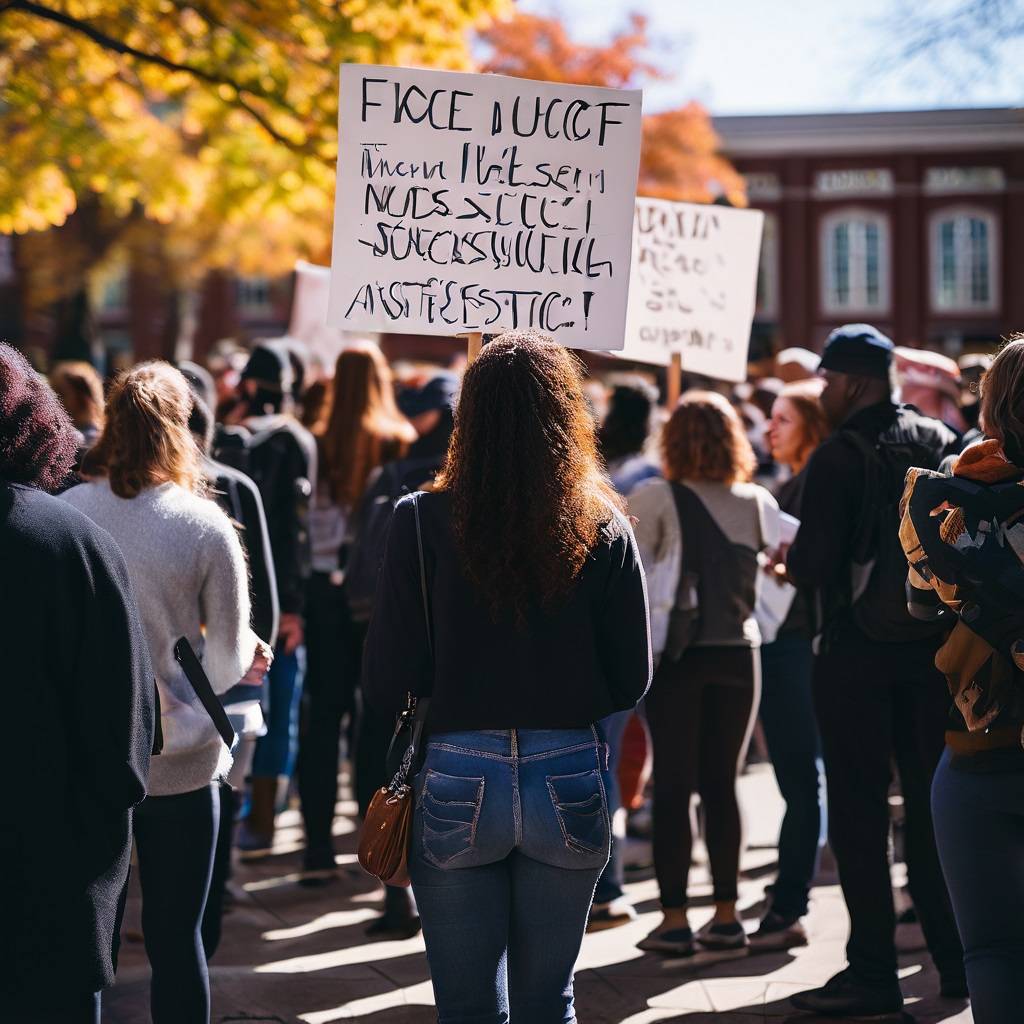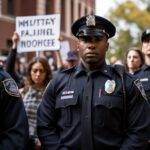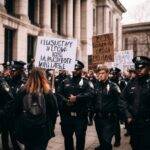Austin, Texas – Charges against all 57 individuals arrested during a Palestine protest at the University of Texas at Austin have been dropped by the Travis County Attorney’s Office. The decision comes after a determination of insufficient probable cause, according to court records obtained by KEYE.
Legal Analysis
Rob Chesnutt, founder of ATX Legal, suggested that potential defects in arrest affidavits led to the dismissal of charges. Chesnutt highlighted the uniformity of these documents, indicating that any flaw in one likely extended to others. This legal scrutiny underscores the complexities involved in prosecuting cases involving mass arrests.
Political Responses
Texas Republican Senator Brandon Creighton commended law enforcement’s actions, asserting Texas’ intolerance for terrorist sympathizers. Governor Greg Abbott similarly voiced support for decisive measures, emphasizing that protestors belong in jail. These statements reflect a broader political discourse surrounding public demonstrations and law enforcement responses.
Campus Perspectives
While some campus voices endorsed the arrests as necessary for maintaining order and safety, others criticized the police response as a violation of free speech rights. Jasmine Re expressed feeling secure amidst the significant police presence, contrasting with Ian Morales’ condemnation of what he deemed excessive force against peaceful protestors.
Legal Rights and Constitutional Framework
The American Civil Liberties Union (ACLU) underscored the protections afforded by the First Amendment, particularly in public forums like UT’s campus. ACLU attorney Brian Klosterboer referenced legislation signed by Governor Abbott in 2019, designating public areas of Texas universities as traditional forums for free speech. He emphasized the constitutional implications of dispersal orders issued in such settings, suggesting potential violations of civil liberties.
Lack of Evidence and Constitutional Concerns
Analysis of arrest affidavits revealed a common charge of failure to disperse. Chesnutt emphasized the absence of compelling evidence supporting criminal activity, leading to the dismissal of charges. This legal outcome raises questions about the threshold for probable cause and the application of free speech protections in public spaces.
Conclusion: Upholding Constitutional Rights
The dismissal of charges against UT Austin protestors highlights the intersection of legal, political, and constitutional considerations in cases of mass arrest. As legal debates continue, it underscores the importance of safeguarding individuals’ rights to free expression and peaceful assembly within the framework of the law.
For more news updates, download The Local News App on your phone.









Leave a Reply